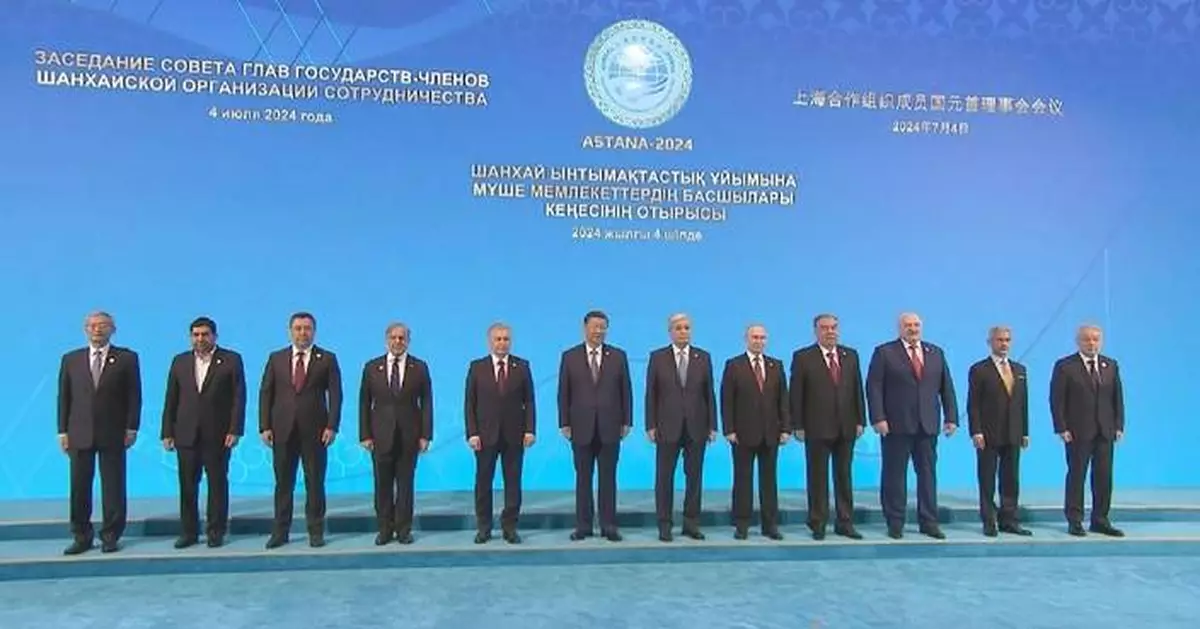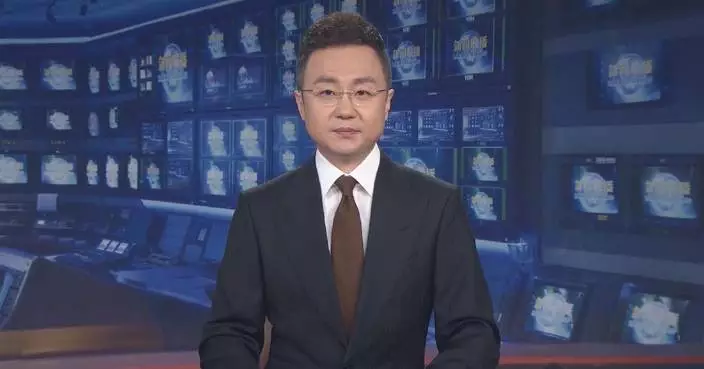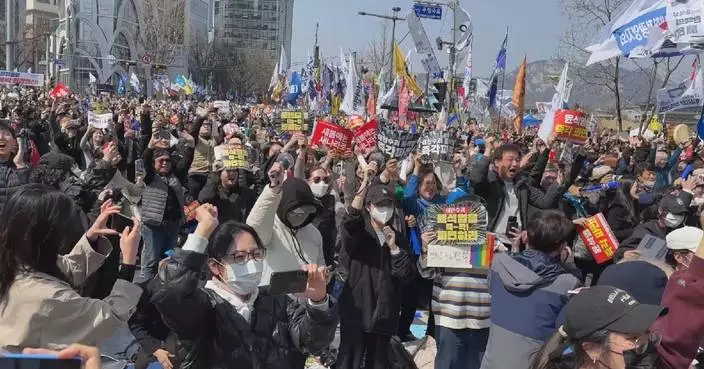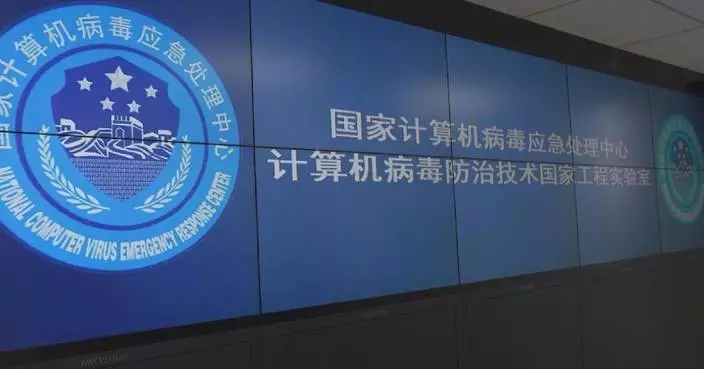China Media Group (CMG) on Sunday unveiled its picks for the top 10 international news stories of 2024, covering a wide range of topics.
CMG's top 10 international news items of the year are as follows:
1. China's head-of-state diplomacy leads the trend of the times for peace, development and win-win cooperation, promoting building a community with a shared future for mankind.
Throughout the year of 2024, President Xi Jinping made four significant overseas visits, consistently calling for stronger win-win cooperation to build a better world.
When attending the 24th Meeting of the Council of Heads of State of the Shanghai Cooperation Organization (SCO) Member States in Astana, Kazakhstan in July, Xi called for building a common home featuring solidarity and mutual trust, peace and tranquility, prosperity and development, good-neighborliness and friendship, as well as fairness and justice.
In October, Xi pointed out when attending the 16th BRICS Summit in Kazan, Russia that the collective rise of the Global South is a distinctive feature of the great transformation across the world.
In November, Xi was invited to attend the 31st APEC Economic Leaders' Meeting in Peru and then traveled to Brazil to attend the 19th G20 Summit. During these engagements, he called for upholding a universally beneficial and inclusive vision for development and outlined China's eight actions for global development, to respond to the strong desire of the Global South for equality and change.
2. The spillover of the Israel-Palestine conflict intensifies regional crisis.
During more than 12 months of the latest round of Israeli-Palestinian conflict, two Hamas leaders were killed in Israeli attacks. The United States has consistently sided with Israel, repeatedly exercising its veto power in the United Nations Security Council to block resolutions calling for a ceasefire in the Gaza Strip.
Throughout 2024, the spillover effects of the Israel-Palestine conflict have become increasingly evident. Israel and Iran struck each other's domestic targets, marking the first direct confrontation between the two countries. Israel was also involved in the explosion of communication equipment in Lebanon, the assassination of Hezbollah leader Hassan Nasrallah, and launched ground military operations in southern Lebanon. Additionally, Israel clashed multiple times with the Houthi forces in Yemen.
In December, Bashar al-Assad was ousted as Syria's president, leaving Ahmed al-Sharaa, head of Hayat Tahrir al-Sham (HTS), to steer the country's transition period. Israel seized the opportunity to gradually encroach upon Syrian territory, provoking widespread condemnation from the international community.
3. The Russia-Ukraine conflict has continued for over 1,000 days, with rising risks of escalation.
There remains a significant divide in the positions for both sides regarding peace talks and negotiations. Russia emphasizes that any agreement must be based on realistic foundations, while Ukraine continues to refuse compromise on border issues and actively seeks to join NATO.
Over the year, the West continued to increase its military support for Ukraine, including on loosening restrictions on the use of Western weapons for Ukraine to conduct long-range strikes on targets deep inside Russia.
4. A political polarized and costly U.S. presidential election presents a showdown between "two Americas."
This year's U.S. presidential election was marked by a series of unexpected events. In July, Republican candidate and former President Donald Trump was injured in a shooting incident during a campaign rally in Pennsylvania. Also in July, Democratic candidate and current President Joe Biden announced his withdrawal from the race, with Vice President Kamala Harris subsequently receiving the party's nomination. In November, Trump defeated Harris, securing a second term in office after a four-year hiatus.
"Polarization," chosen by the U.S. dictionary Merriam-Webster as word of the year, is a word that has been used incessantly to describe the fraught state of American politics and society. Many issues such as immigration, gun control and climate change have divided not only the Democratic and Republican parties, but also the American public.
In addition, super-wealthy individuals and social elites invested billions of U.S. dollars to support their chosen candidates from both parties, leading to an unprecedented level of spending in this election, which has also been referred to as a "showdown of two Americas."
5. The economic recovery in Europe remains sluggish, with the political landscape more fragmented.
Over the year, impacted by factors like changes in the external economic environment and geopolitical conflicts, Europe's manufacturing sector has continued to shrink, service industry growth is slowing and exports remain weak. European Central Bank President Christine Lagarde admitted that Europe's economic growth is "losing momentum."
6. Global economic growth has stabilized, but challenges remain. China will continue to play its role as an important engine of world economic growth.
Reports from the International Monetary Fund and the World Bank show that the global economy is expected to achieve a soft landing in 2024, but it still faces downside risk challenges such as geopolitical conflicts and the rise of trade protectionism.
This year, China's economy has maintained overall stability with steady progress, with solid progress in high-quality development and successful completion of major economic and social development goals and tasks. China remains a key engine of global economic growth, with its unique resilience and enormous potential.
7. AI technology is rapidly evloving, and the international community is paying attention to its governance and supervision.
In 2024, the global artificial intelligence industry accelerated its pace of development, achieving innovative breakthroughs in multiple technological fields and seeing widespread application across various industries.
In March, the United Nations General Assembly (UNGA) passed its first resolution on artificial intelligence, while in July, the General Assembly adopted a resolution proposed by China on "Enhancing International Cooperation on Capacity-building of Artificial Intelligence."
8. A martial law fiasco in South Korea has left Yoon Suk-yeol to become the country's third president to be impeached.
Late at night on Dec 3, 2024, Yoon suddenly announced the implementation of an emergency martial law. At the request of the country's National Assembly, the martial law was lifted approximately six hours after it was imposed.
On Dec 14, the National Assembly voted to approve an impeachment motion against Yoon, making him the third president in South Korea's history to face impeachment by the National Assembly. The impeachment case has been submitted to the Constitutional Court of South Korea for trial.
9. The year 2024 is on track to be the warmest year on record. The 29th Conference of the Parties (COP29) to the United Nations Framework Convention on Climate Change reached a consensus on goals, including the New Collective Quantified Goal (NCQG) for climate finance.
According to monitoring data from the World Meteorological Organization, 2024 is expected to become the warmest year on record, with incidents caused by extreme weather occurring frequently around the world.
The COP29 concluded in Azerbaijani capital Baku on Nov 24, where parties reached a consensus on various issues, including the NCQG and the implementation guidelines for Article 6 of the Paris Agreement.
10. China's delegation at the Paris 2024 Olympic Games achieved its best overseas performance.
The 33rd Summer Olympic Games were held in Paris, France from July 26 to Aug 11. The Chinese delegation brought home 40 gold, 27 silver and 24 bronze medals, marking the country's best ever performance at an overseas Olympic Games.
Meanwhile, China claimed 94 gold, 76 silver and 50 bronze medals at the 2024 Paris Paralympic Games, topping the medal table for six consecutive times.
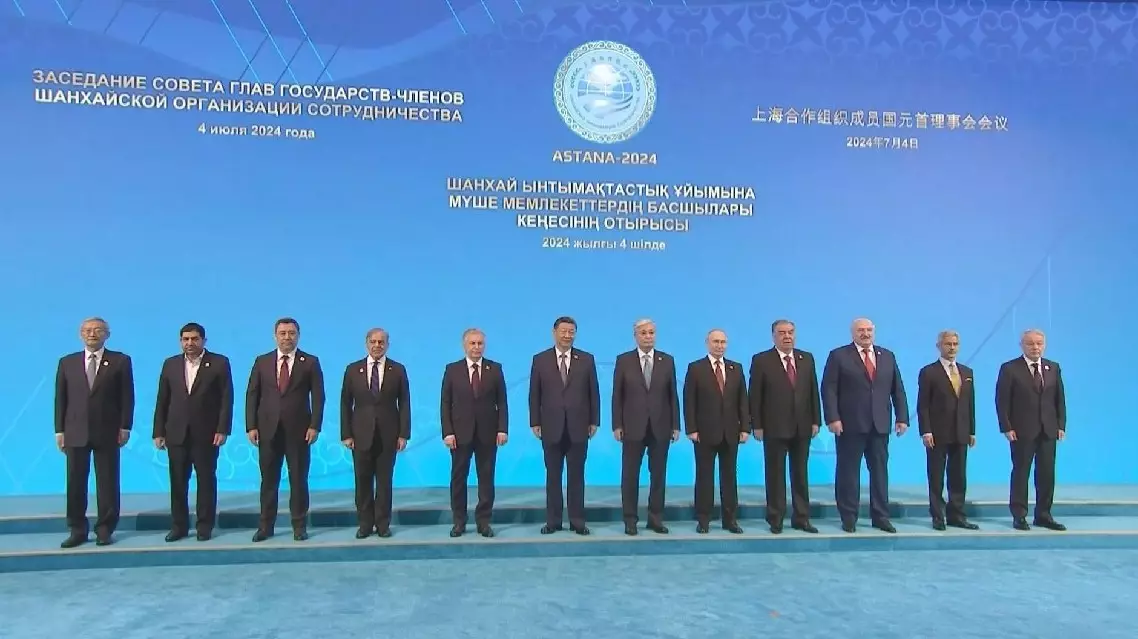
China Media Group picks world's top 10 news events of 2024
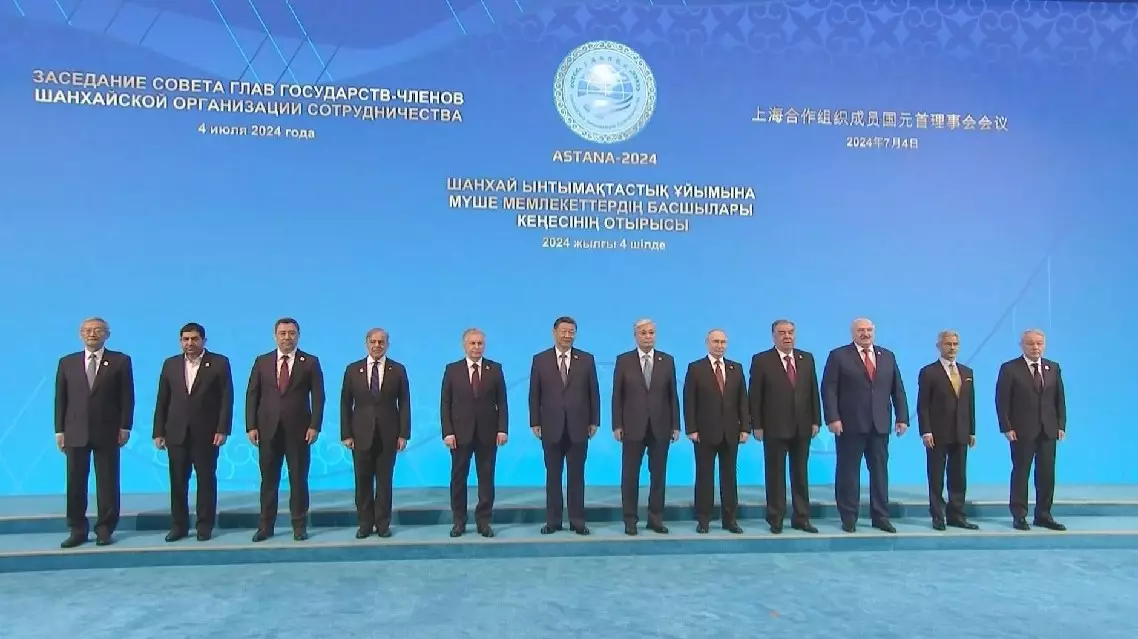
China Media Group picks world's top 10 news events of 2024


